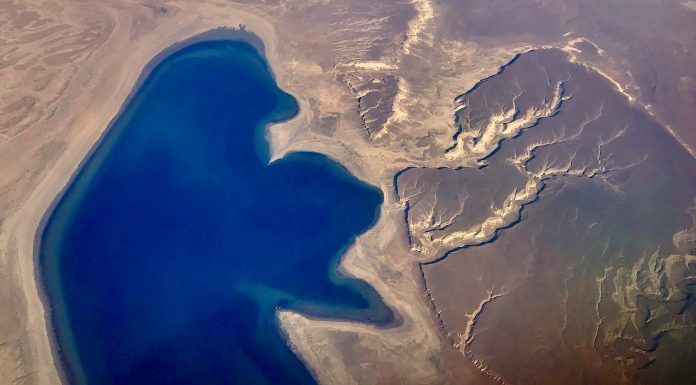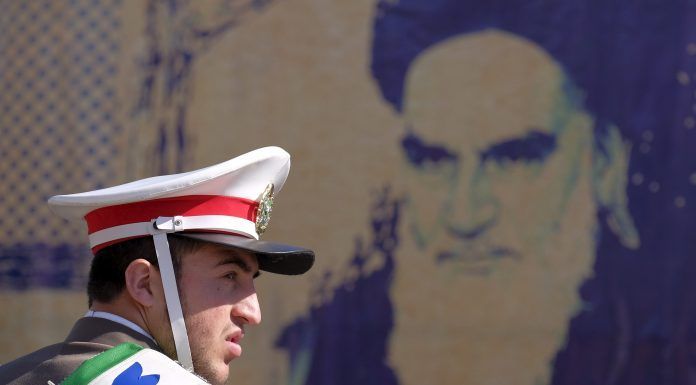By Natasha Phillips
21 Dec – Trump’s surprise decision Thursday to pull U.S. troops out of Syria may leave entire areas of the Levant open to potential control by Iranian government forces seeking to take control of the region, according to experts. Trump’s national security team has opposed the decision despite the President declaring it as a victory against Daesh. Russia welcomed the move, calling the removal of U.S. troops in the country ‘correct’. Iran has offered its support for the creation of a U.N.-sponsored constitutional committee to oversee a peace process for Syria, along with Russia and Turkey. The process has had some teething problems this week: no country has yet been able to agree on the committee’s makeup.
Israel has vowed to increase its military presence in Syria, concerned that the vacuum created by the absence of American forces will leave the region vulnerable to Shi’ite Muslim militias and Iranian government intervention. Netanyahu has also said that Israeli spies regularly visit Iran to monitor its nuclear program. Iranian officials responded to Israel this week with claims that they had wide-ranging intelligence inside Israel, while dismissing Netanyahu’s assertion that Israel had intelligence on the ground in Iran.
• As sanctions continue to bite, Iran’s government has been looking for alternative ways to boost its budget. According to the Iranian Students News Agency (ISNA), the government is considering reinstating the national military service buy-out scheme in 2019 to make up for the current deficit in the Iranian military budget. Kamal Dehghani, deputy chair of the Committee on National Security and Foreign Policy of the Majlis (Iranian Parliament) is quoted as saying, “Barring any objections from the government, the Majlis will include the proposal in next year’s budget. However, we won’t consider the plan if the government makes a strong case against it.” The proposal comes after Mohammad Bagher Nobakht, head of the Management and Planning Organization of Iran (MPO), warned that budgets for the Armed Forces and the Islamic Revolutionary Guards Corps (IRGC) would be cut by 10 percent in the coming year.
→Link to source
• Conflicts inside Iran rage on as Iranian security forces and police continue their clamp-down of protestors and strikers. Mass arrests within Iran’s Baha’i community have come under the spotlight once again with the news that Yekta Fahandezh-Saadi has been arrested for alleged security offenses. Yekta now faces the possibility of an eleven-year jail sentence if found guilty. This is not the first time that Yekta has been imprisoned. Iranian authorities arrested and detained Yekta in 2010, 2012 and 2014 but she was later released. Past charges included spreading anti-government propaganda and engaging in an anti-government conspiracies. Yekta’s family say that the charges past and present are fabrications and that she is being persecuted for being a Baha’i. Risks associated with protesting, including lengthy prison sentences and torture during cross examination, are not stopping demonstrators inside Iran. Teachers continue to rally against government failures to address pay and resources, while a petition asking the Iranian government to ensure a fair trial for eight prominent nature conservationists arrested on spying charges has gathered over 107,000 signatures.
→Link to source
• Fresh concerns have been raised by groups such as Human Rights Watch over what appears to be a renewed crackdown on lawyers and activists inside Iran. The arrest and detention of child rights activist Laily Khatami is the latest in a slew of arrests which the Iranian government says are linked to spying offenses. Laily delivered music programs, counseling and group therapy to children and families in Iran’s most deprived areas. Fariborz Shahraki, a lawyer who decided to inquire about Laily’s detention was later arrested and allegedly tortured during interrogation. Iranian Twitter users seized on the arrests and created a hashtag for Laily which went viral. A Human Rights Watch report released last Thursday claims that Iran’s government is increasingly detaining lawyers, particularly those specializing in civil liberties. The organization is calling the new spate of arrests an escalated crackdown on legal professionals and human rights campaigners. The report also notes the use of what Human Rights Watch says are disproportionately long prison terms for offenses. Fairness in Iran’s courts was also called into question Monday as it was revealed that High profile human rights lawyer Nasrin Sotoudeh will be tried by Judge Mohammad Moghiseh, the same judge Sotoudeh tried to sue last September accusing him of unlawful sentencing and bias during her trial last year.
→Link to source
• Environmentalists inside Iran have grown increasingly worried about Iranian officials’ plans to transport water from the Caspian Sea to the Great Salt Desert (Dasht-e Kavir) in central Iran. The government policy is an attempt at resolving the country’s severe drought problem, with officials taking the view that there is no other solution to the country’s water crisis. The project was launched in 2012, but shelved a year later after the department of environment raised concerns over its impact. It is now back on the table. More than 40 conservationist groups have written to President Hassan Rouhani demanding that the government put an immediate stop to the project. The letter advises the government that the transport of water between the two regions would have disastrous consequences for Iran’s ecology. The letter goes on to say that the Caspian Sea does not hold enough water to supply other parts of Iran affected by drought. Touching on potential political problems the policy might raise, the letter also warns the government that if the Caspian Sea were to run dry Iran would be at the mercy of Russia, which shares certain waterways with Iran, who may in turn use any water shortage to their advantage.
→ Link to source




